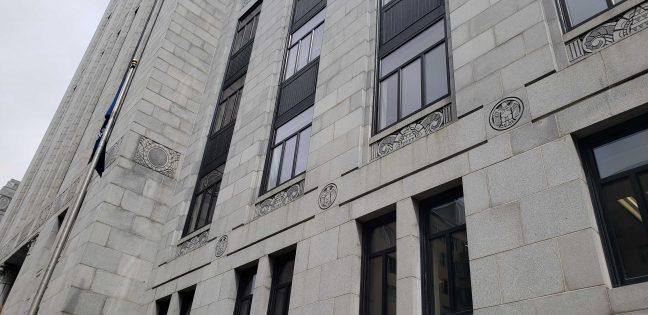It is no secret that the entire world is facing an insurmountable crisis. With almost 90,000 COVID-19 cases and counting in Wisconsin, the University of Wisconsin has announced all classes to be fully online for the next two weeks in hopes of mitigating the increasing positive test results.
Per the Smart Restart plan initiated by UW in the fall, it is mandated that students and faculty alike hunker down in their respective residences for as long as possible, barring emergency trips. With the entire city in lockdown, another crisis comes to light — small businesses and their struggles to navigate through the pandemic.
Since the beginning of the year, small businesses across the U.S. have been forced to make tough decisions to make ends meet — firing workers, cutting wages and decreasing any expenses they possibly can while also staying up to code on the newly instituted health guidelines.
Unfortunately, even that has not been enough. Over 100,000 small businesses throughout the country have had to close as a result of the pandemic. While the businesses themselves are small, with under 500 employees, the loss of these businesses are substantial. Small businesses are one of the most important aspects contributing to the economy, making up approximately 47.5% of the private sector industry.
It is absolutely essential for small businesses to survive the pandemic, or the entire country faces the threat of an economic recession far worse than the 2008 financial crisis.
According to Harvard economist and co-author of the history of financial crises book “This Time is Different” Kenneth S. Rogoff, “This is already shaping up as the deepest dive on record for the global economy for over 100 years. Everything depends on how long it lasts, but if this goes on for a long time, it’s certainly going to be the mother of all financial crises.”
Most, if not all, small businesses are unable to survive a long, drawn-out recession. Many have taken out loans to start out their businesses, creating a deeper financial hole within the world’s largest economy. Even when the economy wasn’t in a recession, only about half of all small businesses survived past five years, according to the Small Business Administration.
To minimize the risk of going into a deeper recession, there must be increased federal, as well as local, support for small businesses. This will be difficult to attain considering how budget figures demonstrate an $870 million drop-off of tax collections since early April.
But there is some optimism to be had, as according to a survey conducted by the U.S. Chamber of Commerce, “almost 90% report their businesses are open in some capacity.” With some added revenue going back into the economy, Wisconsin must dedicate an aid package that goes beyond Trump’s recently instituted relief package.
One of the first priorities is to provide immediate relief to struggling businesses owners. The aid package, likely arising from the U.S. Department of Treasury with some state-wide support, would need to provide immediate cash to many businesses that require funds for their overhead expenses while unable to engage in steady cash flow.
Additionally, Sen. Marco Rubio, R-Fla., and Sen. Susan Collins, R-Maine, proposed The Restoring Economic Security, Confidence and User Endurance Businesses Act of 2020, a $300 billion small business emergency economic relief plan that aims to help small businesses impacted by COVID-19.
RESCUE would enable businesses to take additional loans by increasing the loan limit from $350,000 to $1 million. With comprehensive emergency bills must come local support. People must engage with lawmakers to promote support for small businesses during the pandemic.
Moreover, as many businesses turn to the internet as a means to promote their goods and services, those with the means to should buy from these businesses while respecting social distancing guidelines. This means ordering food online and shopping in local groceries for instance.
Even with small businesses closing not being front page news, people must keep them in mind and advocate for them to ensure the country doesn’t undergo one of the worst economic recessions the nation has ever seen.


